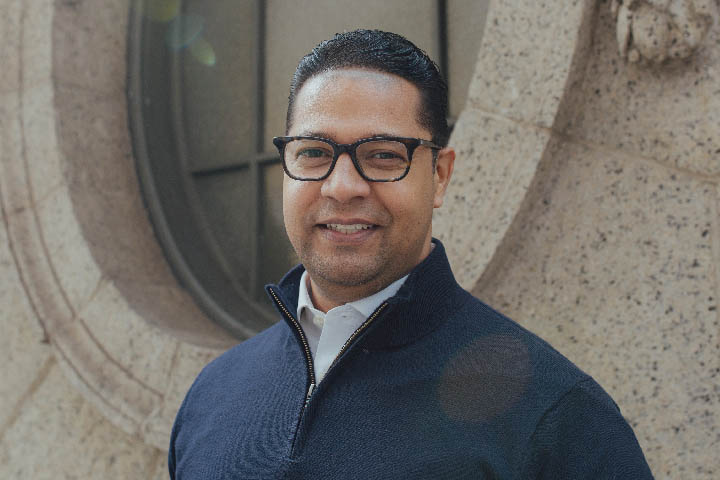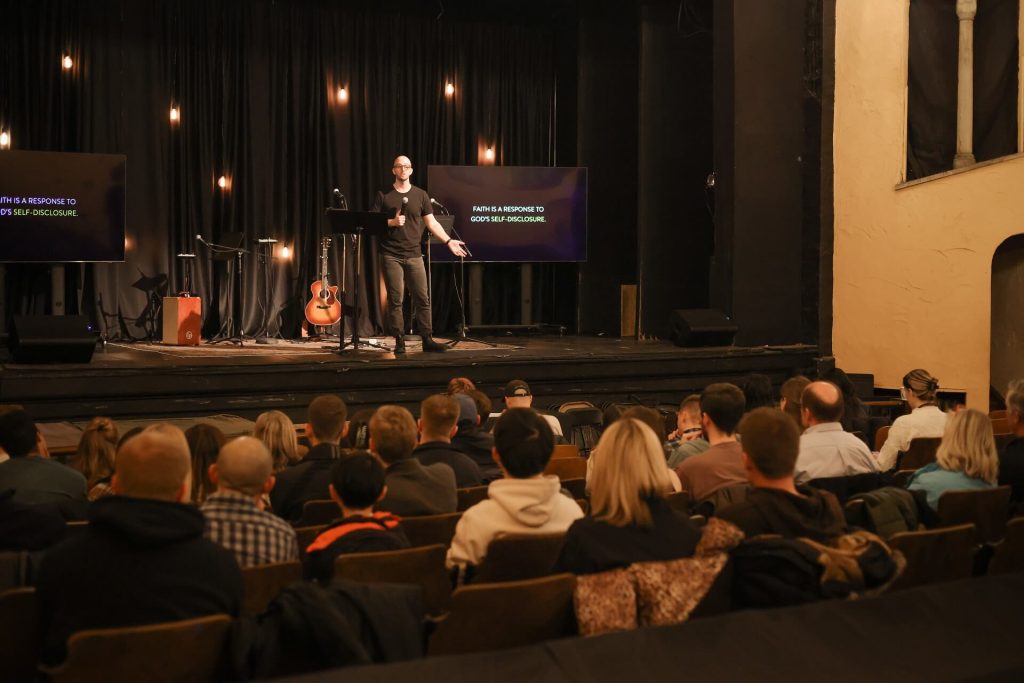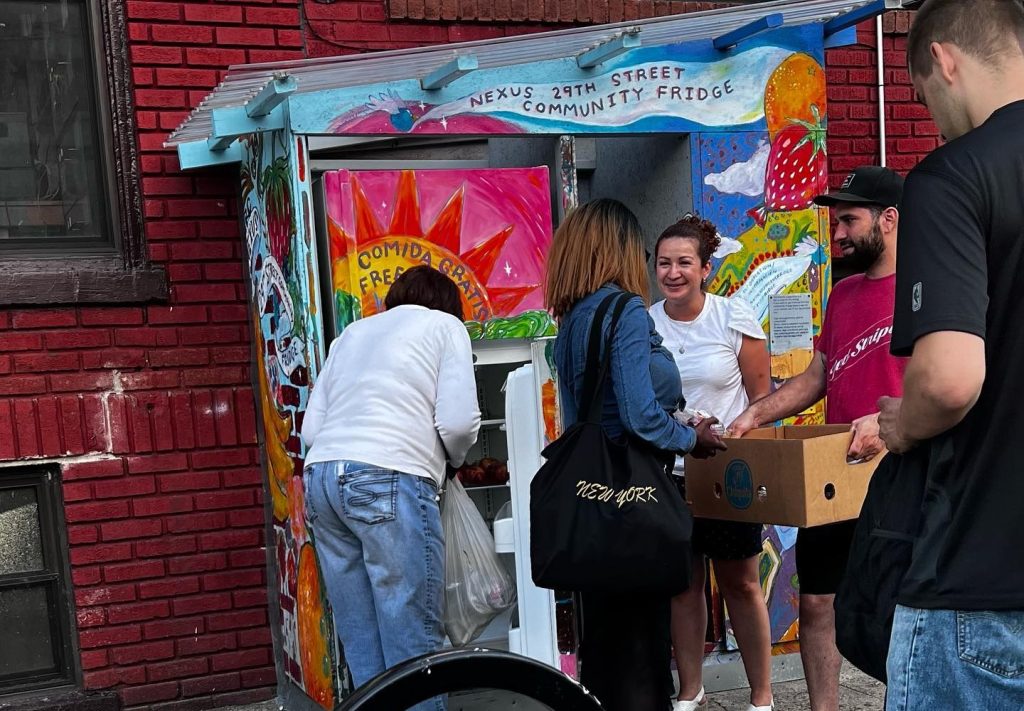In October, pastors and leaders gathered for a conversation with Derrick Puckett, Pastor of Renewal Church in Chicago and President of The Chicago Partnership, a multi-ethnic, multi-denominational team of leaders from local churches working to see a movement of gospel-centered churches in Chicago.
The topic?
Collaboration.
But more than that, the call for self-awareness and how the two are linked in nature.
Abe Cho moderated, sharing the stage with Derrick Puckett and Jordan Rice, church planter and Lead Pastor of Renaissance Church NYC in Harlem.
PUCKETT:
One of the first things that Jesus did after being baptized was make disciples. The need for collaboration is innately biblical, though in the world, there is a tension that brews in my heart.
How do I collaborate, disciple, and build relationships when I live in this culture?
I believe one of the ways this tension is solved is through self-awareness.
Self-awareness as a leader.
I need to preach the sermon, lead the staff, build the budget, counsel people, raise money.
As pastors and as church planters, the best leader is the one who is the most self-aware.
Who am I? What am I good at?
I am not omnipotent, all-powerful, I am not God.
I can be a good preacher, but I am not Jesus.
I can be a good shepherd, but I am not Jesus.
The lie is that I have to be the jack of all trades.
There is an element of truth in this.
But honestly, you are probably good at one or two things.
Not 10 things, although you are probably doing 10 things.
Pastors can be territorial. Pastors in Chicago often stay in their corner. Pastors on the south side stay on the south side and pastors from the north side stay on the north side. Before I started a church, I wanted to get to know all the pastors. I wanted to be a student of the city. I needed friends – people I could build with.
CHO: How did this circle of friends doing ministry in Chicago transition to realizing, “we could be better together for the city of Chicago?”
PUCKETT: We are all good at different things and ministry can be lonely. I knew Charlie Dates was one of the best preachers in America. I am a visionary and others bring the organization or network – I knew we’d be better together. Ministry can be lonely. Chicago Delivers (a collaborative initiative started by pastors in Chicago to make food delivery accessible to low-income families during the pandemic) did not happen when I moved to the city. It came about 6 years later. It was the result of friendship and coming together around a need and the idea for this came from seeing what Jordan was up to in Harlem during the early days of the pandemic with meeting the tangible needs of the community through Renaissance Church’s We Spread Love campaign.
RICE: Jesus learned obedience in how he suffered. Through the loneliness of the pandemic and all the loss individually and collectively, the Lord humbled me and moved me from, “it’s nice if we do this” to “I’m not going to make it without collaboration and walking alongside people who are doing ministry in the city.” The Lord used the pandemic to humble me and remind me that I would not make it alone for the long term. Now, when I see the fruit of that collaboration, I think “Why haven’t we been doing this all along?” I was always too busy.
PUCKETT:
Historically speaking, black communities have come together. Desegregation was good. But it did disrupt some things we had going on in the black community. It was good and needed to happen but it created a tokenism effect. It created this element of, “well, he made it. He made it out of his community.” “If he can make it, you can make it.” There was a pressure to do this or be this for the community. It tears down the structure for collaboration and community and pits people against the other. This person is the savior or the token. And now you have sayings like, “there can only be one rooster in the henhouse.” I have to be the one. I have to do the thing. This has never been the case! We are where we are because of the collaborative effort of our ancestors and how they came together. We’ve always been better together.
RICE:
Generally speaking, church planting culture is largely unhealthy. It’s about – bigger, faster, stronger. These are all things that turn pastors and church planters into puppets. You have donors and partners wondering why you haven’t grown fast enough. And God forbid you grow too quickly! We need a reckoning for how we define success.
CHO:
When you are driven by metrics, you can’t help but compare yourself to others and it makes competition the default. We have to fight celebrity culture.
Is this about me or is it about Jesus?
Harry Truman said, “It’s amazing what you can accomplish if you don’t care who gets the credit.”
Friendships like that between Jordan and Derrick along with Derrick’s desire to collaborate with pastors across the city of Chicago are tangible examples of this kind of collaboration when there are no stakes on the line about who gets the credit.
In order to grow more in the area of self-awareness and collaboration, start with these two things:
- Read this Book: Leadership as an Identity: The Four Traits of those who Wield Lasting Influence.
- Take Steps: Identify two other pastors you can begin to connect with to build deeper friendship. Explore what it looks like to dream and pray together.



